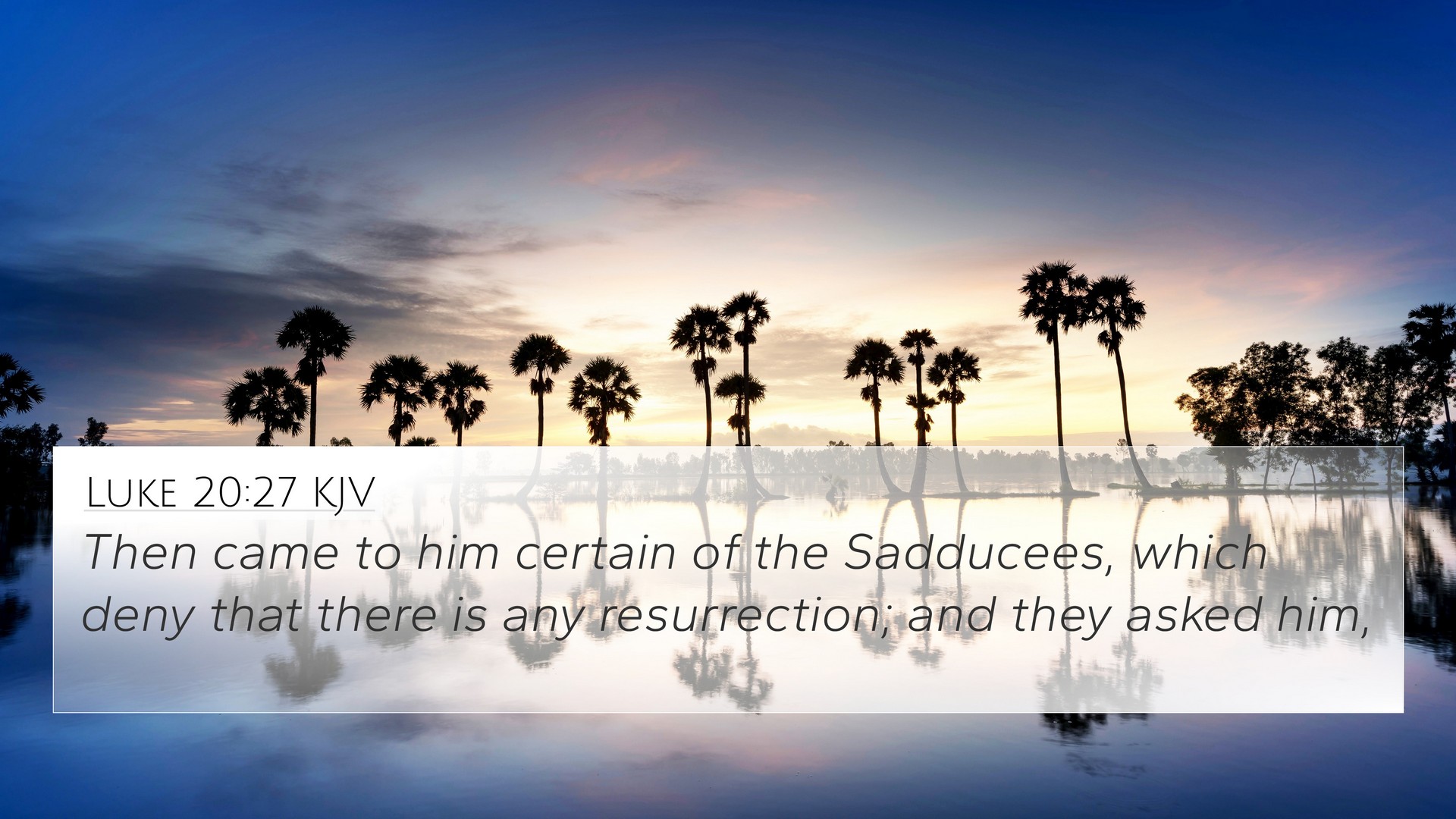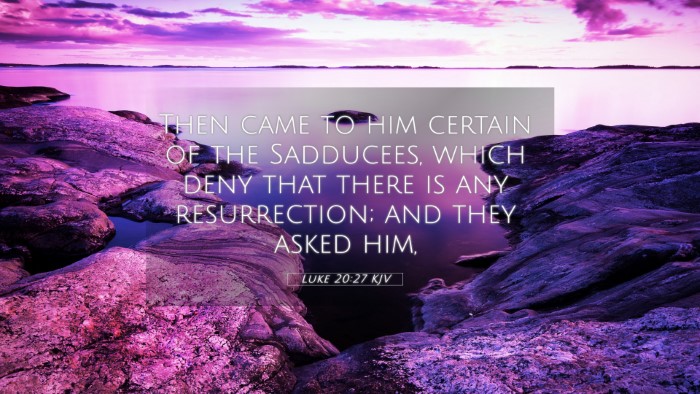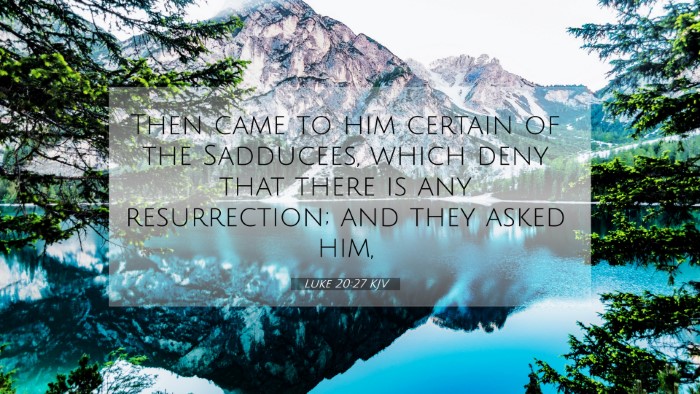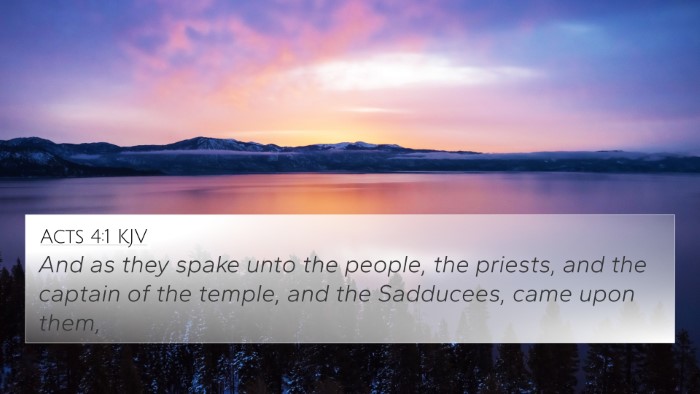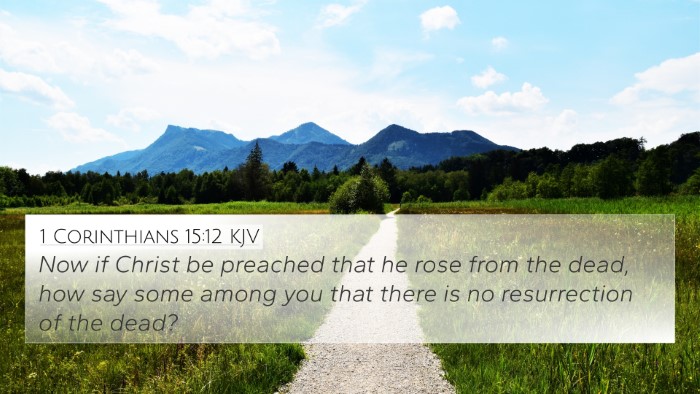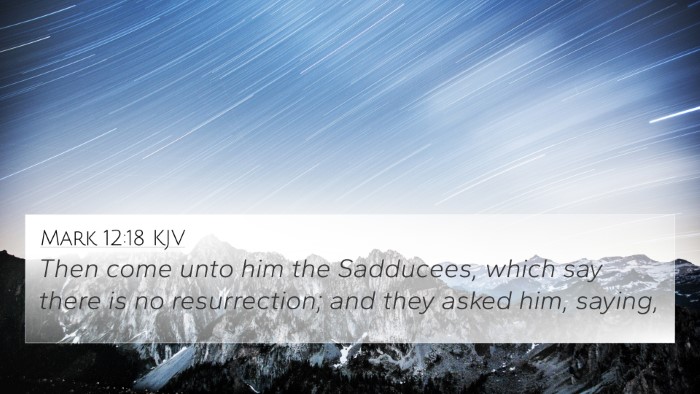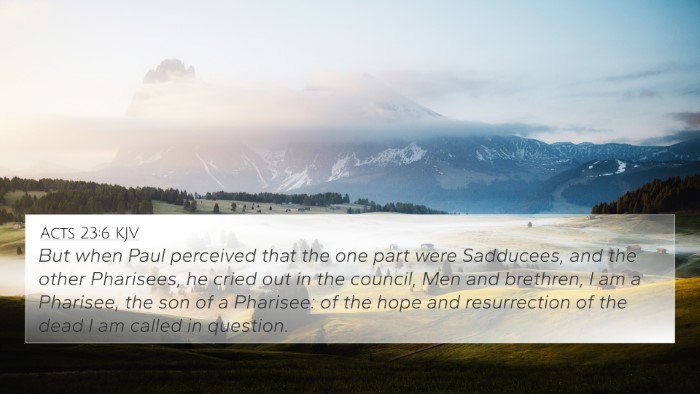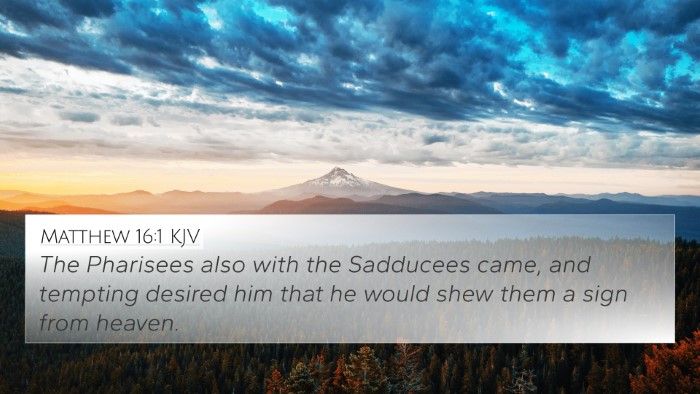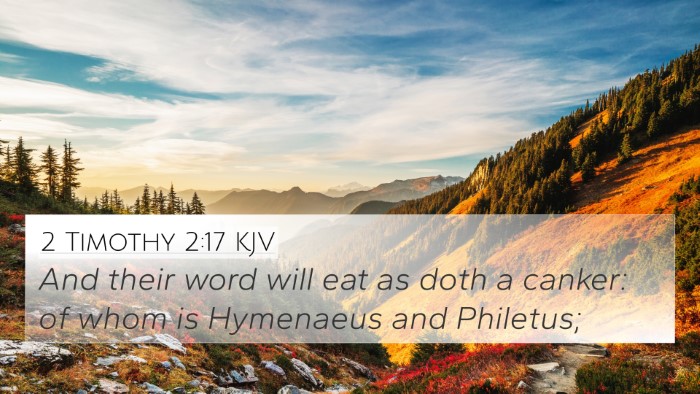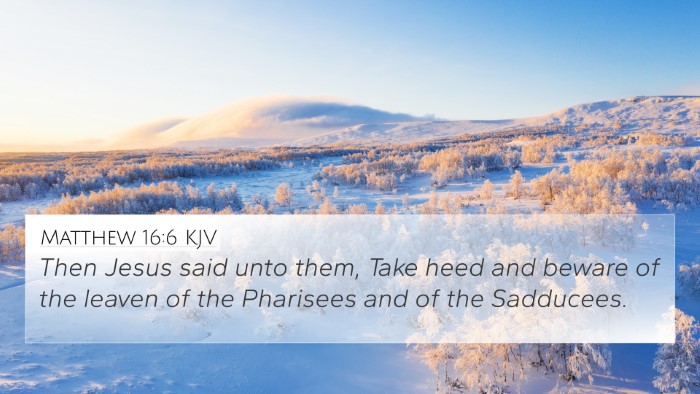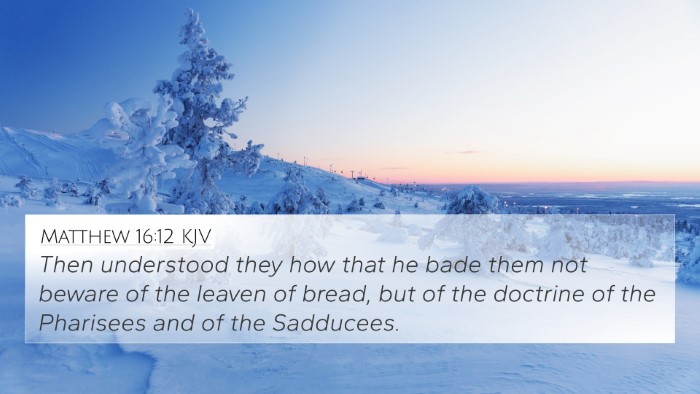Understanding Luke 20:27
Verse: "Then came to him certain of the Sadducees, which deny that there is any resurrection; and they asked him, saying," (Luke 20:27)
This passage introduces a significant conversation between Jesus and a group known as the Sadducees. The Sadducees, a Jewish sect, were recognized for their denial of the resurrection and their strict adherence to the Torah.
Meaning and Context
The Sadducees approached Jesus with a question, aiming to challenge the belief in eternal life and resurrection — a topic widely debated in Jewish theology. Their line of questioning reveals both their skepticism and intent to trap Jesus in a theological dilemma.
Theological Insights from Commentaries
-
Matthew Henry:
Henry notes that the interaction highlights the ignorance of the Sadducees regarding the power of God. They underestimate God’s ability to raise the dead and to transform existence beyond physical life.
-
Albert Barnes:
Barnes emphasizes that the Sadducees’ question illustrates their materialistic worldview. By citing the law of Moses, they attempt to undermine the resurrection by introducing an absurd hypothetical scenario.
-
Adam Clarke:
Clarke echoes the sentiment that the question posed by the Sadducees reveals their intentions to provoke confusion. He suggests that they did not genuinely seek the truth but aimed to showcase what they believed to be the absurdity of the resurrection doctrine.
Key Themes
The essence of this verse revolves around the foundational Christian concept of resurrection and eternal life. Some of the central themes include:
- Challenge of Faith: Represents skepticism towards fundamental beliefs.
- Divine Power: Highlights God's authority over life and death.
- Hope of Resurrection: Underscores the promise of life after death.
Bible Cross-References
Understanding Luke 20:27 can be enriched by exploring related scriptures. Here are several important cross-references:
- Matthew 22:23-32: Another account of the Sadducees questioning Jesus about the resurrection.
- Mark 12:18-27: A parallel passage discussing the same encounter with additional insights.
- 1 Corinthians 15:12-22: Paul's discussion on the resurrection of the dead and its significance for believers.
- Acts 23:8: A reference to the theological divide between the Sadducees and Pharisees regarding resurrection.
- Job 19:25-27: A strong Old Testament affirmation of hope in resurrection, showcasing early beliefs in life after death.
- Daniel 12:2: A prophetic verse asserting that many who sleep in the dust shall awaken.
- Romans 6:5: The connection of Christ’s resurrection to the promise of eternal life for believers.
- Philippians 3:10-11: The Apostle Paul shares a personal desire to know Christ and experience resurrection.
- Revelation 20:6: A depiction of the blessedness of those who take part in the first resurrection.
- John 11:25-26: Jesus states He is the resurrection and the life, reinforcing the belief in eternal life.
Connections Between Bible Verses
When studying Biblical texts, it is essential to engage in comparative Bible verse analysis. Luke 20:27 serves as a pivotal reference point that connects several themes within Scripture. Examples of thematic Bible verse connections can be observed:
- The resurrection theme ties Luke 20:27 to several prophetic and apostolic texts.
- Discussions on faith and skepticism appear in both Old and New Testament contexts.
- Divine authority and power over life are prominent throughout scripture, providing a continuous dialogue.
Conclusion
Luke 20:27 opens a profound dialogue concerning resurrection and eternal life, showcasing the tension between faith and skepticism. By cross-referencing with other Biblical texts, we uncover a rich narrative of hope, challenge, and divine promise. This verse not only responds to the Sadducees' inquiries but also sets the stage for deeper spiritual understanding on the resurrection and eternal life as foundational Christian beliefs.
